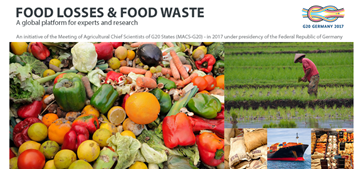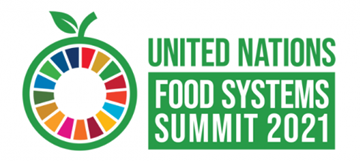
Food waste
Food waste refers to the decrease in the quantity or quality of food resulting from decisions and actions by retailers, food service providers and consumers (SOFA, 2019).
Less food loss and waste would lead to more efficient land use and better management of water resources, which would positively impact climate change and livelihoods.
 Committee on World Food Security (CFS)
Committee on World Food Security (CFS)
CFS called on all public, private and civil society actors to create an enabling environment based on the hierarchy of “food use-not-loss-or-waste” especially for monitoring and measurement targets.
 The International Food Policy Research Institute (IFPRI)
The International Food Policy Research Institute (IFPRI)
IFPRI conducts research to provide innovative, evidence-based policy solutions to enhance food security and fight poverty. One of its cutting-edge studies is the measuring of food loss and waste at all stages -- from production and post-production to processing, distribution and consumption -- in order to identify the origin and cost of food waste and loss at the local, regional and global level. IFPRI is currently working with the CGIAR Research Program on Policies, Institutions and Markets (PIM) to better understand the levels of investment required to effectively reduce post-harvest losses through infrastructure development and technology improvements combined with best practices.
 The Meeting of Agricultural Chief Scientists-G20 food loss and waste research platform
The Meeting of Agricultural Chief Scientists-G20 food loss and waste research platform
Take part in the global research network on reduction of food losses and food waste – be part of the solution!

This Platform contributes to the Food is Never Waste Coalition established as a result of the UN Food Systems Summit in September 2021.
